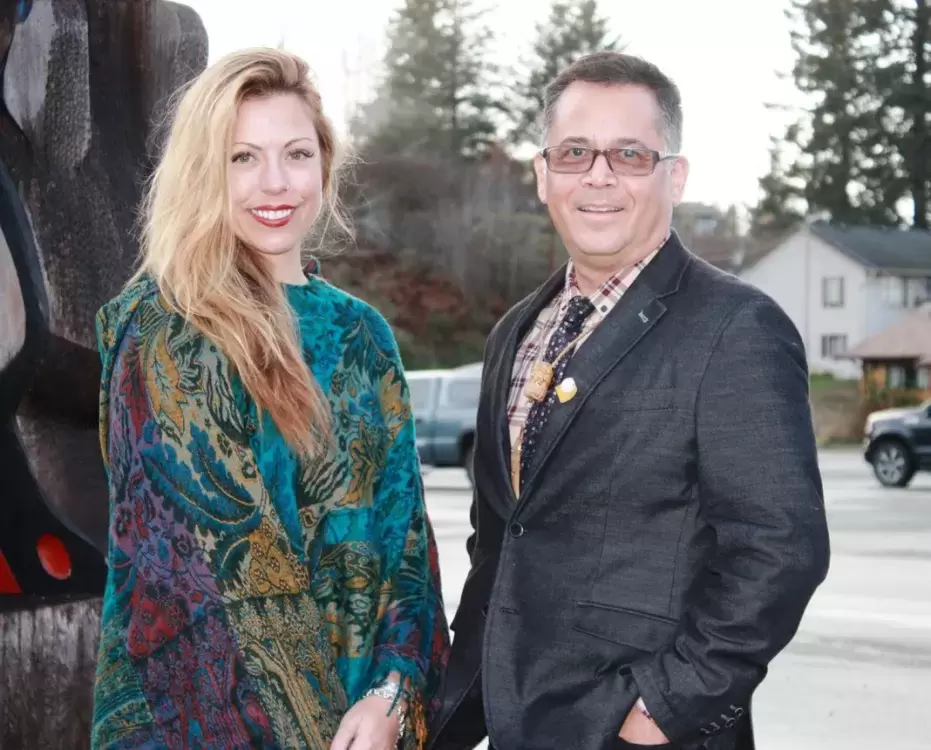“Harm reduction – it’s more than just handing out Naloxone kits and clean needles,” says Michael McCarthy. Newly hired at the Nuu-chah-nulth Tribal Council, McCarthy has strong roots in Yucluthaht and knows first-hand the devastation that a sudden death from drugs causes.
In the past two years several Nuu-chah-nulth communities have suffered losses linked to opioid overdose. The B.C. Coroner’s Service issued a report Nov. 14, saying the number of deaths from suspected drug overdose for September, 2018 was 128; in Sept. 2017 it was 83 – a 38 percent increase between the two months.
“The number of illicit drug overdose deaths in September 2018 equates to about 4.3 deaths per day for the month,” says the BC Coroner’s report. And as the opioid crisis continues to devastate families across the nations, Nuu-chah-nulth families and frontline responders are also in need of resources.
McCarthy is now working as the Nuu-chah-nulth Tribal Council’s harm reduction outreach worker. He joins Clinical Counselor Natalie Ocean, recently hired as NTC Teechuktl/Mental Health harm reduction outreach worker.
Both Ocean and McCarthy will be offering training to Nuu-chah-nulth community support workers in the coming weeks, but first they need to finish designing the content.
McCarthy, with his Yucluthaht/Hesquiaht roots and facilitation background is working to incorporate Nuu-chah-nulth content in the training program. That includes changing the name of the program from harm reduction to something more meaningful to Nuu-chah-nulth people.
“When people hear harm reduction they might think Naloxone kits, but it’s about bringing forth old Nuu-chah-nulth wisdom, the teachings that tell us how to keep our bodies, mind and spirit healthy and how to look after one another,” he said.
Beginning in early December, 20 Nuu-chah-nulth human services workers from throughout the territories will begin the first module of training, which Ocean says will give them the skill set to deal with opioid overdoses and the aftermath in their respective communities.
There will be training in the use of the opioid reversal drug Naloxone, first aid and more.
Ocean says there is a provincial model that they will follow, but what makes this training different is Nuu-chah-nulth cultural training and support that will be built in.
“We are ‘indigenizing’ the program while building capacity in the communities,” said Ocean.
In addition to emergency training, people will learn more about first responder self-care and community care which will also have a Nuu-chah-nulth theme.
The training starts Dec. 3 in Nanaimo for the 20 pre-selected front-line workers, many of whom have taken similar training offered by NTC Teechuktl in the past. The four-day course will allow community wellness workers to learn about appropriate responses to addiction-type incidents in the community.
Later in the program they will learn about first aid and build on their knowledge. They will learn what resources are out there that people in their community can access.
Finally, there will be a component that teaches people coping mechanisms for traumatic incidents, because it is important that first responders take care of themselves. Again, this type of training will include cultural healing methods.
The training will be on-going, as Ocean and McCarthy take the program on the road to deliver it in the outlying Nuu-chah-nulth communities.







